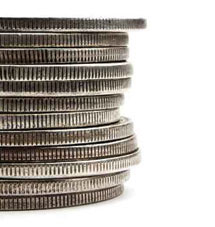
ANSWERS / Social Inequities
Are you concerned about increasing social inequality?
The stability of our society to a large degree depends on the assumption of the "American Dream" which is the thought that hard work and smarts will lead to material advantage and therefore social mobility. When a high degree of social inequality is perceived, this often leads to anger and frustration, further leading to lack of incentive re the working ethic and even to violence. Further, when this inequality is thought to be structural – what does that mean – that is, inherent in the very system itself rather than the result of personal choices, then it starts to put society on knife edge where small disturbances can create major shocks. Occupy Wall Street is only one example of this.
Essentially our monetary/banking system is unstable and it takes significant regulatory interventions to maintain the stability. These interventions consist of Fed interest rate adjustments, bank regulation changes (such as the Dodd-Frank bill), bank reserve requirement changes (e.g., the Basel 3 accord), Quantitative Easing (QE for short), etc. These adjustments create shocks in the system which hurt the middle class and the poor much more so than the rich. For an academic overview of this see the paper Monetary Policy and Economic Inequality.
The Real Money Economy as described here is an inherently stable system and does not need the regulatory oversight, nor interventions listed above, and thus does not go through the shocks we frequently experience. I am definitely not saying that all social inequality is because of our monetary system, as there are effects of globalization, generational effects, and so on, but the changes advocated here would significantly reduce the amount of inequality we see.
See the video: WEALTH INEQUALITY IN AMERICA